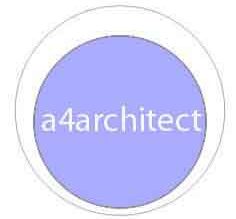Plot size.
Most Nairobi plots are sized between 0.5 acres and 4 acres. Very few plots are less than 0.5 acres in size. These small sizes are mainly found in the Central Business District area. A few land owners have large sized lands eg Kenya Railways has 40 acres in Ngara and Muthurwa area. There is also a 6 acre plot for sale or Joint Venture next to State House in Nairobi.
Land Development Cost .
Land Construction development costs depend on the plinth area that will be built up. Nairobi is a high income area so most buildings usually budget to use high quality construction materials which are relatively more expensive.
Mixed Use Developments.
Its possible for developers to mix both offices and residential areas, mostly fully furnished apartments for the residential part. This is common in Upper Hill area of Nairobi CBD.
Plan passing cost.
On average, plan approval costs are in the range of 0.5% of the estimated construction cost.
Time and duration for the plan to be passed.
Planning permissions are obtained from the Nairobi County Government planning department located at City Hall, Nairobi.
Plan approvals are done electronically through a web portal where the architects submit the drawings for approval by the relevant departments. This process takes an average of 1.5 months.
Government Charges (development, Scrutiny fees, deposits, occupancy charges etc.,
There are also other approval fees associated with National Environment Management Agency at 0.1% of the estimated construction cost. If the land is zoned differently from the intended use, then there are costs associated with change of user to the new intended use.
Sale of Property.
The building, once developed, can be sold in portions , through sectional properties act, or can be sold as a whole, through the land registration act or sold as a limited liability company depending on the number and % of shares .
Availability of water .
Nairobi City water comes from Ndakaini Dam within Muranga county. Nairobi and its environments have a low water table so water is available abundantly from private bore holes, water vendors and Nairobi City Government water department.
The cost of water around Nairobi is low. Water is stored in roof top tanks and underground tanks. Roof top tanks are mainly made of plastic while underground tanks are made from concrete walls.
Power Consumption.
Nairobi has a very efficient electricity power supply. Its very rare for blackouts to affect the CBD. Most buildings have invested in diesel powered power generators in case there is a blackout.
Boundary wall cost.
In most Nairobi buildings, boundary walls are intricately designed and finished with relatively expensive materials.
Rules and regulations governing construction
Construction rules and regulations are domiciled within the Nairobi County Government Planning approval department by laws, National Construction Authority NCA and Board of Regulation of Architects and Quantity Surveyors of Kenya BORAQS.
Fees structure of the Architect.
Architects are remunerated as stipulated in the Chapter 525 of Kenya laws Architects and Quantity Surveyors of Kenya act. This is at a % of the estimated construction cost.
Subsidies.
There are no subsidies given to developers.
If 5000 sq. meter land available what will be the permissible area for construction for office and residential.
Assuming a 5000m2 plot, the permissible ground coverage can range from 25% to 80% depending on the specific location as discussed with the planners.
- Number of Floors.
The number of floors that a developer can construct is restricted in some parts which are near flight paths eg around Gikomba area, around Langata Wilson airport area. In other parts, there are no restrictions as long as the design satisfies the planning authorities in terms of vehicular parking and waste water disposal.
- Government support.
The Nairobi County Government can provide off street parking facilities, water, fire fighting and garbage collection.
- Cost of lease.
Outright permission to sell is guaranteed. The developer can sell through sectional titles or through the land title. The developer can also opt to lease out the building. The lease rates for Nairobi CBD fall in between kes 100 to kes 180 per square foot for office buildings. This rate varies for ground floor shops.
Architect Francis Gichuhi Kamau. B.Arch. U.o.N.
info@a4architect.com


Leave a Reply